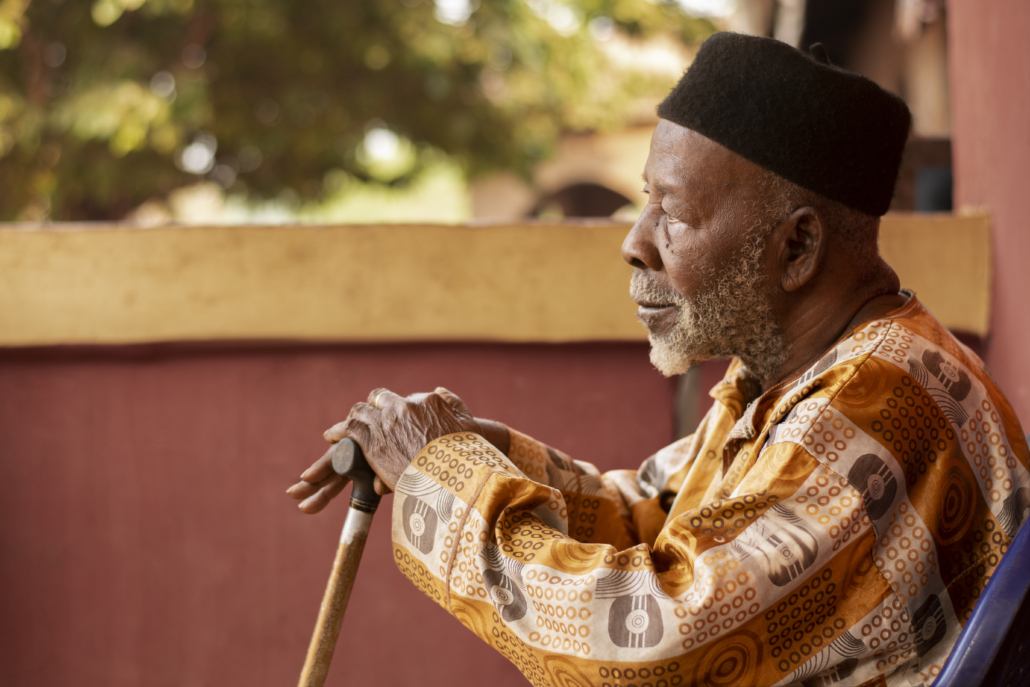Aging in Deprivation: Elderly Poverty in Trinidad and Tobago
 The Caribbean islands of Trinidad and Tobago are grappling with their ability to support the elderly members of their country as life expectancy increases. The older community is the fastest growing part of the population, with a current estimate of 14%, which is putting a natural strain on the government’s ability to provide for their housing and health care needs. It is unclear exactly how many of the elderly are in poverty, but due to their estimated growth to 30% of the population by 2050, protective measures are being taken.
The Caribbean islands of Trinidad and Tobago are grappling with their ability to support the elderly members of their country as life expectancy increases. The older community is the fastest growing part of the population, with a current estimate of 14%, which is putting a natural strain on the government’s ability to provide for their housing and health care needs. It is unclear exactly how many of the elderly are in poverty, but due to their estimated growth to 30% of the population by 2050, protective measures are being taken.
When they can no longer support themselves, the elderly are “the prime target to be victims of poverty, exclusion and marginalization, and may suffer from the effects of negative stereotyping.” It grows increasingly more difficult for them to meet their daily needs as they struggle with unexpected health costs and no source of income. Members of a lower socioeconomic status, and without family to financially support them, are left lonely and in a position of hopelessness when they reach the age of retirement.
Exacerbating Elderly Poverty in Trinidad and Tobago
There are a multitude of factors that can contribute to or exacerbate poverty. Two of the larger contributors to elderly poverty in Trinidad and Tobago are the development of chronic illnesses and health care costs. These unpredicted costs force the elderly into making sacrifices in order to financially support their health needs.
Multimorbidity is the development of multiple chronic medical conditions, and its prevalence is found to increase with age. Multimorbidity is not seemingly more common in low socioeconomic communities, however, its occurrence in those members is far more detrimental. The correlated increased hospital visits, medicinal costs and medical bills would only push the elderly further into poverty and unhealthy living conditions.
The majority of the population of Trinidad and Tobago does not receive coverage from health insurance, while “inequalities in coverage persisted across socio-economic status: only 4% of the population among the poorest income quintile” had coverage. Additionally, long term care facilities are highly dependent on pensions to meet costs. This is marginalizing the proportion of the population that does not receive a pension and makes escaping the cycle of poverty more difficult.
Solutions
Government programs from the Ministry of the People and Social Development have already been implemented to support the health of the elderly. A few of these programs being: Necessitous Patients Programme/Medical Aid Programme, Adult Cardiac Surgery Programme and the Memory Clinic. All of these programs and the continual betterment of national health services sets a positive precedent for the elimination of elderly poverty in Trinidad and Tobago.
A major success is the adoption of the Chronic Disease Assistance Programme (CDAP). This program provides government funded medication to people with “non-communicable diseases such as hypertension, diabetes, heart disease and certain cancer therapies.” Alleviating the factors contributing to elderly poverty in Trinidad and Tobago displays progress towards a better future and provides the aging community with some sense of relief and care.
Habitat for Humanity
There are a multitude of organizations that are dedicated to finding solutions to the issue of elderly poverty in Trinidad and Tobago. One of those organizations is Habitat for Humanity, which approaches tackling poverty by facing the demand for housing throughout the country. The organization helps people who do not qualify for loans, due to either their age or income, by providing housing solutions.
It has worked in Trinidad and Tobago since 1997 and has since then served 845 individuals through building and repairing homes. It began its program in the country after the release of an estimate that 200,000 people were living in informal settlements and the wait for government housing was 25 years. In order to provide aid, it utilizes both donations and volunteers.
Looking Ahead
A lot of commendable work has occurred to combat the issue of elderly poverty in Trinidad and Tobago. The government has made strides in noticing and addressing the needs of the older community, specifically in regards to their health care needs. There are still areas to address in order to lift the community out of poverty, but there are numerous volunteer and support opportunities to help achieve that goal.
– Sydney Morrow
Sydney is based in London, UK and focuses on Global Health, and Politics for The Borgen Project.
Photo: Freepix
